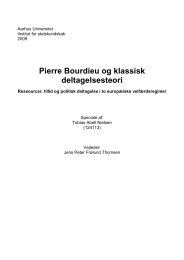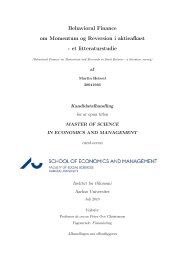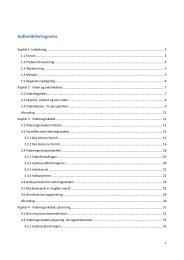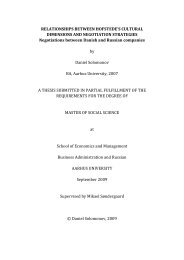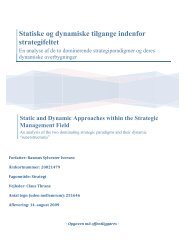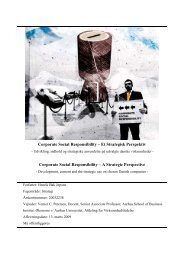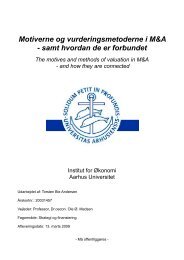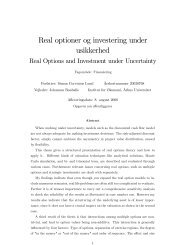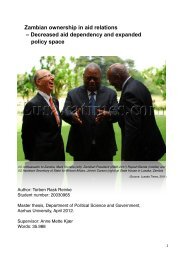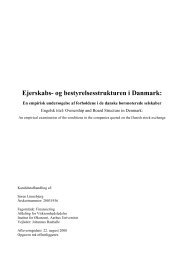The Relative Performance Evaluation Puzzle
The Relative Performance Evaluation Puzzle
The Relative Performance Evaluation Puzzle
You also want an ePaper? Increase the reach of your titles
YUMPU automatically turns print PDFs into web optimized ePapers that Google loves.
Joh, Sung Wook, 1999, ”Strategic managerial incentive compensation in Japan: <strong>Relative</strong> performance evaluation andproduct market collusion” Review of Economics and Statistics Vol. 81, side 303-313.Kim, Su Ku. (1995) “Efficiency of an Information System in an Agency Model”. Econometrica. Vol 63. No. 1 side 89-102Lamirande, Guigou & Lovat (2008). “<strong>Relative</strong> <strong>Performance</strong> <strong>Evaluation</strong> and Tacit Collusion”. Review of BusinessResearch. Vol. 8.side 103-112.Main. Brian G. (1991). ”Top Executive Pay and <strong>Performance</strong>”. Managerial and Decision Economics, Vol. 12, side.219-229Maug, Ernst (2000). “<strong>The</strong> <strong>Relative</strong> <strong>Performance</strong> <strong>Puzzle</strong>”. Schmalenbach Business Review. Vol 52. side 3-24.Mitchell, Timothy (2010) RPE Does Reducing Exposure to Common Risks Provide <strong>Performance</strong> Benefits in MultiperiodSettings. Working paper.Modigliani, Franco & Miller, Merton H (1958), ”<strong>The</strong> Cost of Capital, Corporation Finance and the <strong>The</strong>ory ofInvestment”, American Economic Review Vol. 48, side 261– 297.Murphy, Kevin J., 1999. “Executive compensation”Oyer, Paul, 2004 “Why Do Firms Use Incentives That Have No Incentive Effects?,” Journal of Finance, Vol.59, side 1619–1650.Prendergast, Canice. 1999. “<strong>The</strong> Provision of Incentives in Firms.” Journal of Economic Literature. Vol 37. No.1 Side7-63.Rajgopal, Shevlin & Zamora (2006) “CEOs Outside Employment Opportunities and the Lack of <strong>Relative</strong> <strong>Performance</strong><strong>Evaluation</strong> in Compensation Contracts”. Journal of Finance. Vol 61, side 1813-1844.Rogerson, William P. (1985). ”<strong>The</strong> First-Order Approach to Principal-Agent Problems” Econometrica, Vol. 53, No. 6,side. 1357-1367Schmalensee, R, (1989), “Good Regulatory Regimes,” Rand Journal of Economics, Vol. 20, side 417-436.Sengupta, Adidi. (2007) “Product Differentiation and <strong>Relative</strong> <strong>Performance</strong> <strong>Evaluation</strong> in an Asymmetric Duopoly.”Working Paper.Spagnolo, Giancarlo (2000) ” Stock-Related Compensation and Product-Market Competition”<strong>The</strong> RAND Journal of Economics, Vol. 31, No. 1, side. 22-42Yim, Andrew (2001) “Renegotiation and <strong>Relative</strong> performance evaluation: Why information signal may be useless”.Review of Accounting Studies, Vol. 6, 2000-2018.76/76




